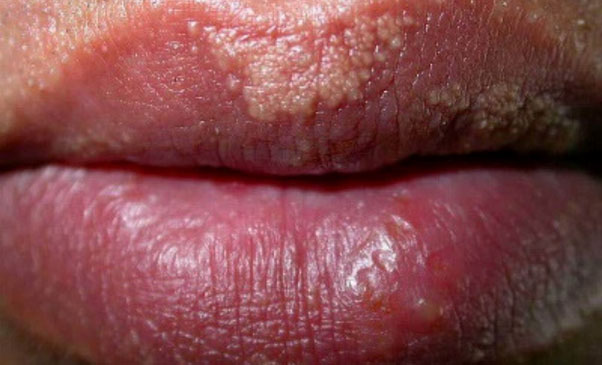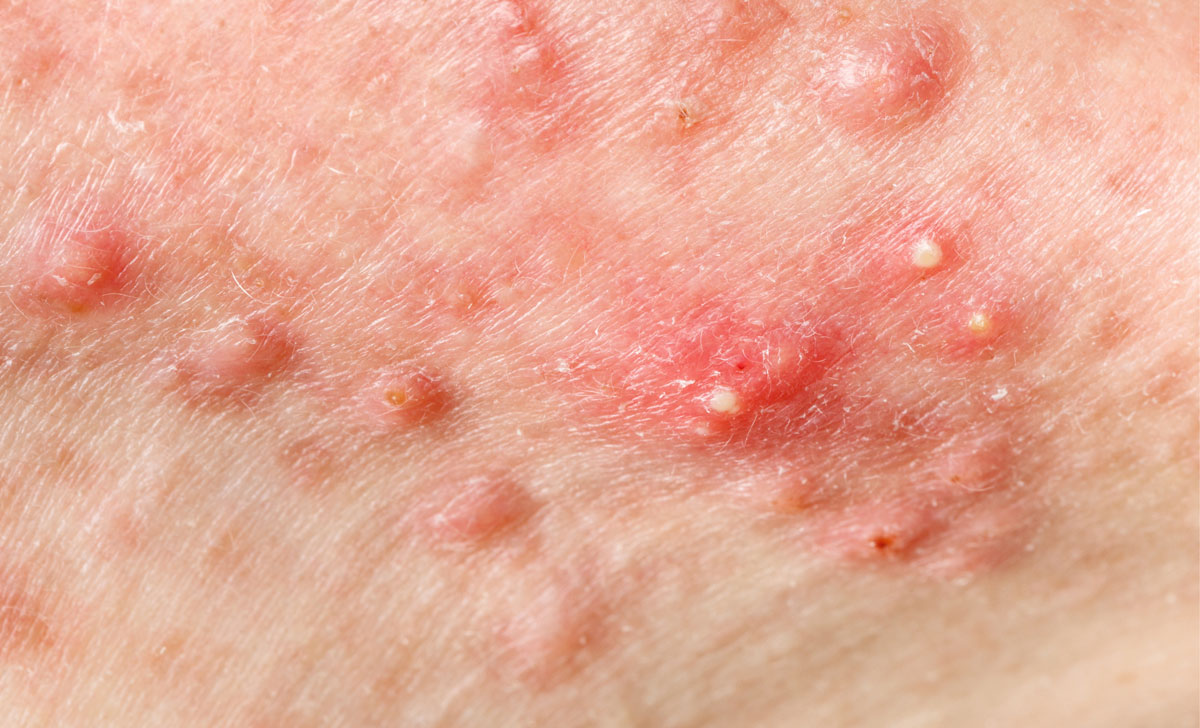All You Need To Know About Fordyce Spots
Feb 09, 2024 By Marie White
Have you noticed tiny white or yellowish bumps on your lips or genitals? If yes, then you may have Fordyce spots. Fordyce spots are small, painless, and harmless white or yellowish bumps that appear on the skin. They are named after the American dermatologist John Addison Fordyce, who first described them in 1896.
Fordyce spots can appear on the lips, inside the cheeks, and on the genitals, and they are a common occurrence in both men and women. Although Fordyce spots are harmless, they can be concerning for some individuals.
This blog post will explore everything you need to know about Fordyce spots, including their causes, symptoms, treatment options, and more.
What are Fordyce Spots?
Fordyce spots, also known as Fordyce granules, are skin-appearing sebaceous glands. These glands are in charge of producing sebum, which keeps the skin moisturized. These glands become enlarged in some people and appear as small white or yellow bumps on the skin. The spots can be so small that you don't even notice them sometimes; however, some can be large and noticeable. They are more common in men than women and can appear at any age.

Causes of Fordyce Spots
Fordyce spots are caused by an overabundance of sebaceous glands, which produce oil or sebum that lubricates and protects the skin. These glands can be found all over the body, including the lips, cheeks, and genital area. However, in some people, these glands can enlarge and produce more oil than necessary, resulting in Fordyce spots.
The cause of sebaceous gland overproduction is unknown, but it is thought to be a genetic condition. Some research has also suggested that hormonal changes, such as those seen during puberty, may play a role in the formation of Fordyce spots.
What are the Symptoms of Fordyce Spots?
These spots take the form of small bumps that can be white or yellowish. Unless they occur in large numbers, they are usually painless and cause no discomfort. Itching or a burning sensation may occur in some cases, especially if the spots are on the lips.

Treatment Options for Fordyce Spots
Fordyce spots are generally harmless and do not require treatment. However, some people may find them aesthetically unappealing or may experience psychological distress due to their appearance. In such cases, there are several treatment options available, including:
Electrodessication: Electrodessication is the process of removing small patches of the skin using an electric needle. The wounded areas could take up to five days to fully recover.
Topical treatments: Treatment with a topical treatment, such as a retinoid such as Retin-A®, may help diminish or maybe get rid of your Fordyce spots. It could take two to six weeks before you start seeing any changes.
Micro-punch surgery: During micro-punch surgery, your doctor will use a pen-like instrument to "punch" holes in your skin and remove tissue. Healing time for your injuries could be up to a month.
Cryotherapy: Cryotherapy is the practice of using freezing temperatures to damage tissue. You may feel some soreness in the treated area for up to three days after cryotherapy.
Laser skin resurfacing: Skin resurfacing using a carbon dioxide (CO2) laser involves the removal of superficial skin layers using either short bursts of light energy or constant light beams, with minimal thermal trauma to the surrounding tissue. Healing time for your wounds could range from five to twenty-one days.
Home Remedies for Fordyce Spots
You can reduce or eliminate Fordyce spots using numerous home remedies as well. Home remedies are generally safe, but before doing any of the following, it's best to check with your doctor. There's a chance you could have a skin allergy.
Argan oil and jojoba oil: Both argan oil and jojoba oil are good sources of vitamin E. Vitamin E's high antioxidant content has been shown to improve blood flow and skin firmness. After around four weeks, you will probably notice a reduction in the size of your Fordyce spots if you apply argan or jojoba oil at least twice daily.
Apple cider vinegar: The astringent characteristics of apple cider vinegar help to reduce the size of your pores and eliminate excess oil. Use a mixture of 1 tsp of apple cider vinegar and 1/4 cup of water twice or thrice weekly on your Fordyce areas. After about a month, you can observe improvements.
Coconut oil: Fordyce spots may be exacerbated by dry skin because of an overproduction of oil by the sebaceous glands. Coconut oil is an effective moisturizer and oil controller, so try applying some directly to your Fordyce spots.
It is recommended not to touch or squeeze your Fordyce spots, as it will lead to irritation and inflammation of the spots.
Tips to Prevent Fordyce Spots from Worsening
While Fordyce spots do not cause harm or require treatment, they can be a source of embarrassment or self-consciousness. Here are some tips to minimize their appearance:
• Use a gentle exfoliator
• Wear breathable fabrics
• Maintain good hygiene and wash the affected areas regularly
• Keep the skin moisturized
When to See a Healthcare Provider
Fordyce spots are generally not dangerous and do not necessitate medical attention. However, if the appearance or texture of the spots changes or if they become painful or itchy, you should consult a healthcare provider. It is also vital to visit a doctor if you notice the appearance of Fordyce spots on the genitals, as they can be confused with sexually transmitted infections or other conditions. Your physician can perform a physical exam and, if necessary, order additional testing or refer you to a specialist for further evaluation and treatment.
Conclusion
In conclusion, Fordyce spots are harmless and do not pose any health risks. They can be a cosmetic concern for some individuals, but various treatment options are available to reduce their appearance. If you're concerned about these spots, it's always best to consult your healthcare provider, who can offer you tailored advice and treatment options.
Self-diagnosing is not recommended, as it may lead to unnecessary anxiety or concern. Always seek professional help for any concerning symptoms or health issues.







